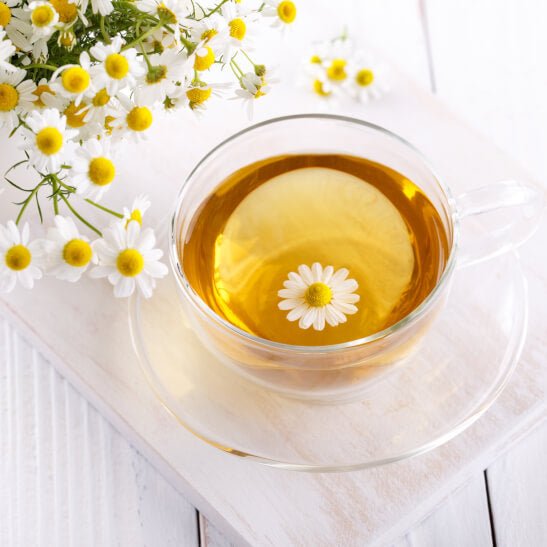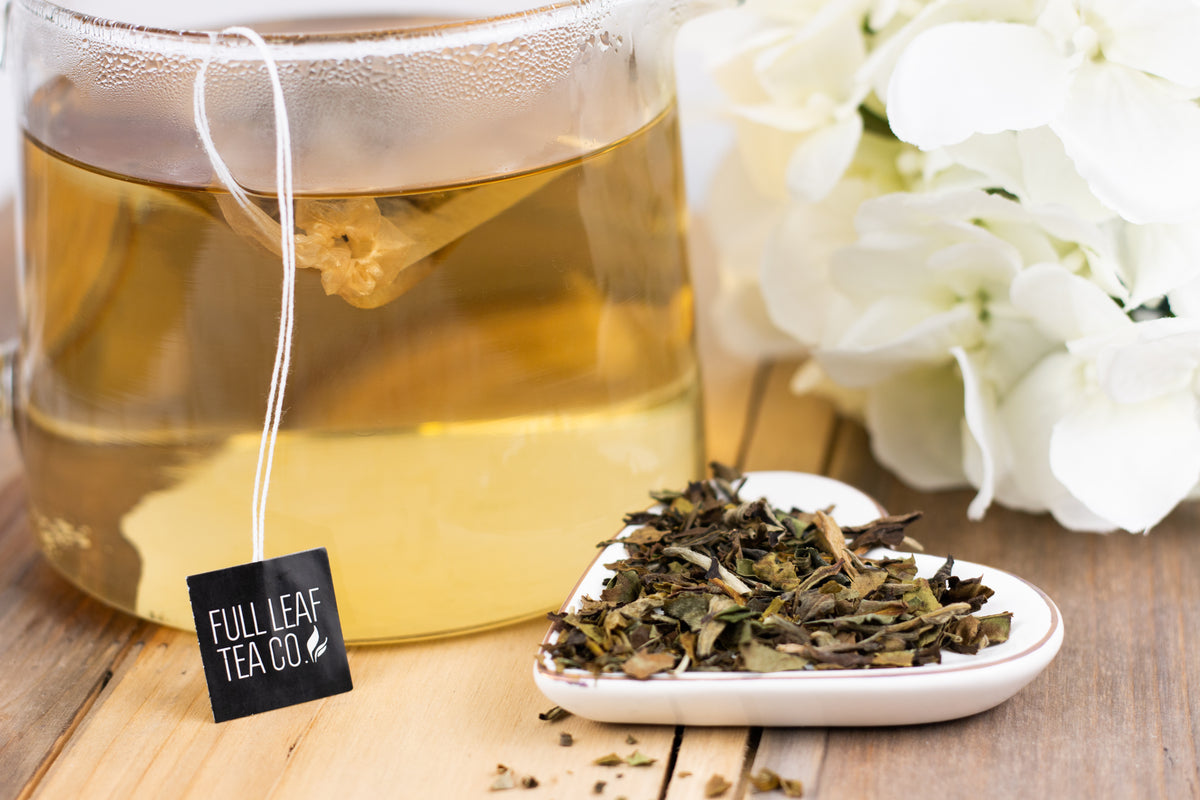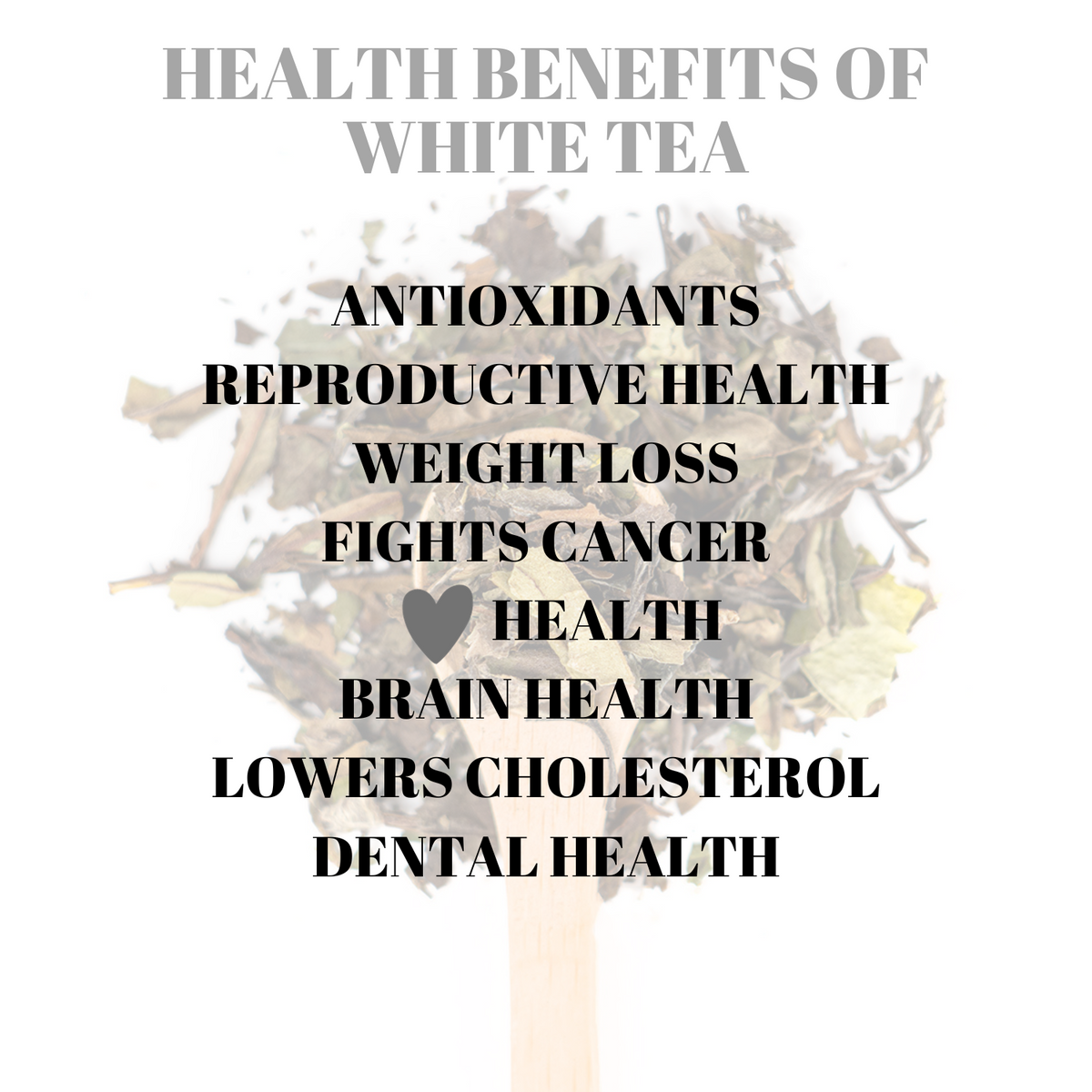What is White Tea? - Benefits, Taste, Uses
What is White Tea?
White tea comes from the leaves of the plant Camellia Sinensis like all other teas. But unlike many other teas, white tea is only lightly oxidized, meaning that it retains a beautiful and delicate profile.
This lack of processing also leads to a smooth and almost airy flavor that keeps many coming back for more. White tea is full of polyphenols and catechins, which are responsible for its unique health properties.
Quickly Jump To:
White tea health benefits
Antioxidants in white tea
First, we’ll start with the antioxidants. Antioxidants are crucial to helping your body fight off free radicals, and what are free radicals? Free radicals are single oxygen atoms that can work within your body to damage your cells by reacting adversely with other molecules. Antioxidants work to keep free radicals from negatively affecting your health by preventing cellular damage.
White tea helps lower cholesterol
You may be surprised to hear that tea could lower your cholesterol, but being packed with saponins, White Tea can do just that. Saponins are naturally occurring agents that contain anti-inflammatory and cholesterol-lowering properties. It’s thanks to saponins that White Tea can potentially lower bad cholesterol (LDL) while supporting your heart at the same time.
Improve heart health with white tea
Between the saponins and abundant antioxidants found packed within White Tea, your heart will get some much-needed support. When consumed, White Tea may help reduce the risk of heart disease while simultaneously maintaining good heart health and function.
White teas reproductive qualities
Another surprising benefit of White Tea? It’s potential to support reproductive health and boost fertility, especially in men. White tea has been shown to help fight off free radicals, which causes testicular oxidative damage, helping to preserve sperm quality in such individuals.
Weight loss with white tea
Weight loss is one of the better-known benefits of White Tea. White tea may help to support your dietary goals by increasing your body’s fat oxidation processes during exercise, making it the perfect drink for your morning workout or your post-workout cooldown.
White tea vs. cancer
When White Tea isn’t busy fighting off testicular oxidative damage or heart disease, it can be found fighting off cancerous cells in some cases. While a surprising benefit of White Tea, the saponins and antioxidants are present in White Tea along with naturally occurring ursolic acid, rutin, tannin, chlorogenic acid, and chlorophyll compounds, make this brew particularly useful in some when it comes to warding off cancerous cells.
Improve your dental health with white tea
And lastly, you may be surprised to hear that White Tea can assist with your dental health. Typically, we think of drinks outside of water being bad for our teeth, such as coffee or soda. Still, White Tea has naturally occurring polyphenols and fluorides, which can potentially provide a host of dental benefits such as helping to prevent cavities as well as reducing plaque.
How is white tea made?
White Tea is harvested off the Camellia Sinensis when the bud is still young and yet to open. At this stage of development, the buds still have small white hairs growing over its surface, leading to the name “white tea.”
Unfurled leaves are gathered at this point to be dried along with the buds. Since the leaves and buds are harvested so early and dried quickly, they do not have the chance to oxidate like other blends of Tea.
Camellia Sinensis is the same plant from which we brew green, oolong, black, and Pu-erh. This fruitful evergreen bush is indigenous to China and India and plays a vital role in the tea brewing world.

What does white tea taste like?
White tea has a smooth and delicate flavor that will keep you coming back for more. With a slightly sweet taste and light perfume finish, White Tea pairs well with nearly any meal or snack. There is no bitterness to it like green, and black tea sometimes has.
White tea is an excellent base for our blends due to its mild taste. It picks up and enhances flavors of the ingredients that are added to it.
How much caffeine is in white tea?
If you’re looking for a tea that’s almost nearly un-caffeinated but can still give you a small jump, then white tea will be ideal for you. White tea is one of the least caffeinated teas you can drink. Depending on how strong the tea is, there can be 30mg of caffeine per 8 oz of tea. The average cup of coffee can have around 100mg of caffeine.

Where to buy white tea
White tea can be found online! Shameless plug: but as of writing this, we sell 6 different types of white teas. We’re USDA certified organic, and our products are vegan and free of GMO’s. To top it all off, we have over 10,000 positive reviews, so feel free to try us out!
Shop White Tea →How do you steep white tea?
Add one tsp of white tea to an infuser, such as our Full Leaf Tea Signature Infusers, or our Natural Paper Drawstring Tea Bags. Let the tea steep for 2 to 4 minutes in 8 oz of almost boiling temperature filtered water. Ideally, your water will be simmering at about 170º. After the tea has finished steeping, remove the tea leaves from the liquid, and enjoy it!

